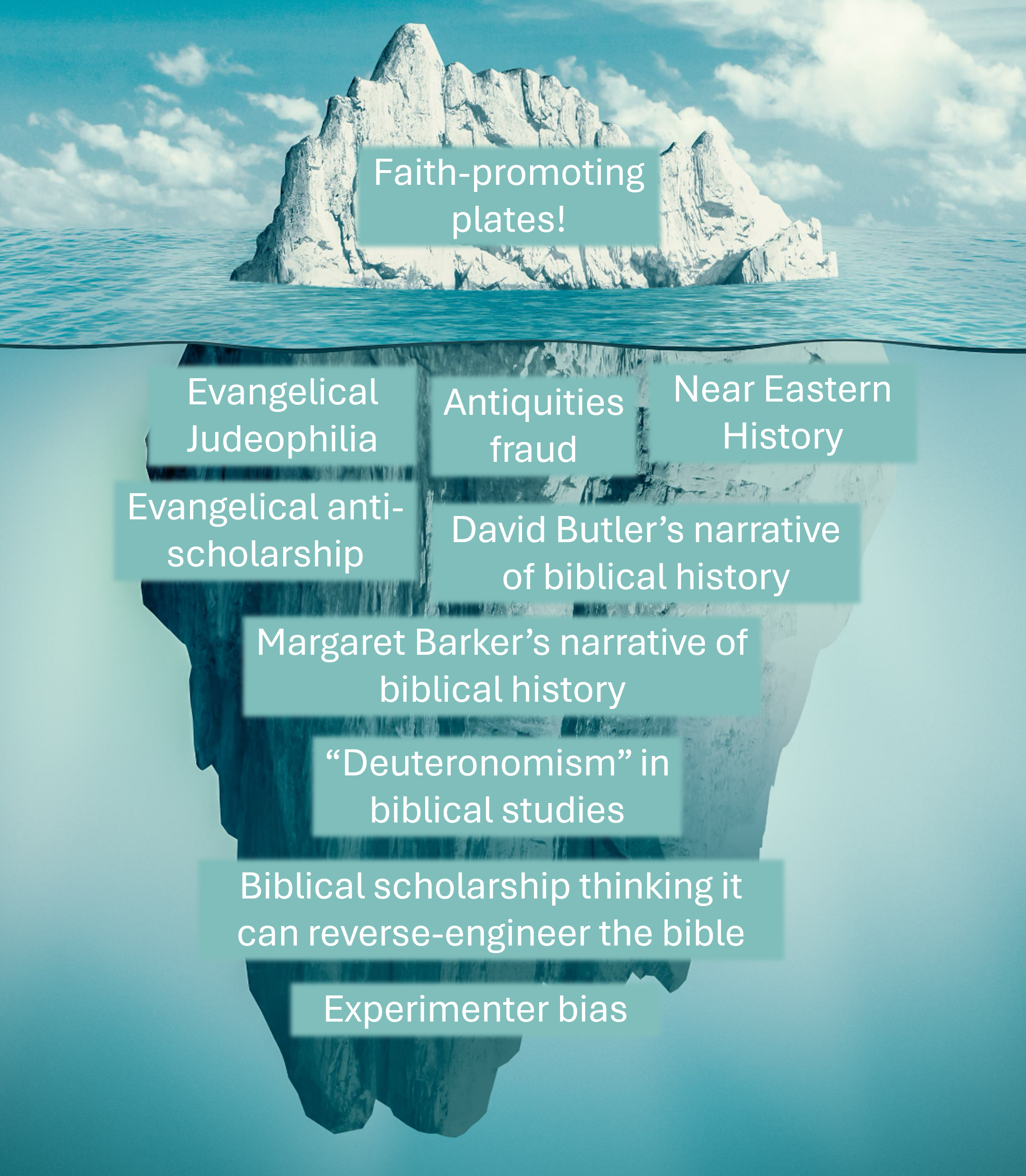The following is a composite sketch of conversations I and others have had with people in the polygamy-truther movement, which rejects the idea that Joseph Smith ever practiced any kind of plural marriage. Their questions are in bold, followed by my answers.
Continue reading “Dialogue With Polygamy Truthers”Category: #LightTheWorld
New Game: Ridiculous Fundamentalist Apostate Scripture Interpretation
Our objective in this game is to become what Joseph Smith called “accusers of the brethren.” We are going to apply fundamentalist logic to scripture so that we can formulate accusations against God’s ordained servants.
Continue reading “New Game: Ridiculous Fundamentalist Apostate Scripture Interpretation”On polygamy-denial and autism
One of my favorite YouTube content creators is nuclear physicist Kyle Hill, and some time ago he posted a great video about his autism:
Years ago I listened to a psychologist’s review of autism markers, the lengthy questionnaire that psychologists use to assess whether someone is on the autism spectrum. I was amazed at how many of the markers applied to me, though many significant markers didn’t. I’ve never personally gone in for an assessment, but if I did, I imagine I would be told that I have a significant number of traits in common with autistics, and if I’m not on the spectrum then I’m very close to it.
Continue reading “On polygamy-denial and autism”Another Advantage of Church Government
Dan’s recent article referencing the Chad Daybell/Lori Vallow trials makes some excellent points, and one of them is how the Church council system helps moderate and focus leadership, especially how the seniority system acculturates any Prophet-President into this system to moderate any cult-like behaviors that we do see in certain Evangelical and even non-Christian communities. (See: James Jones’ People’s Temple, Heaven’s Gate, Antifa—all “secular” religious cults, in my opinion.) But there was an additional point that occurred to me when I was talking with a friend this morning who was closely following the trial.
Continue reading “Another Advantage of Church Government”Multiple Mortal Probations, and Lack of Discernment
The following are some YouTube clips that give some context to the fabulist false-prophetic culture that led to the crimes of Chad Daybell. If you’re not familiar with his story, it is covered in the Netflix documentary, Sins of Our Mother.
Warning: it is a very twisted rabbit hole that will mess with your head.
How it began
Eric Smith was a member of Chad Daybell’s inner circle, along with Julie Rowe and others.
Here, Eric recalls going “outside the box” before his excommunication for teaching the idea of multiple mortal probations:
Continue reading “Multiple Mortal Probations, and Lack of Discernment”The iceberg of the Saudi gold plates
Conversations about the Saudi gold plates are like any conversations where there are mismatches in context. To illustrate, I have created the iceberg of this particular controversy.

The Imaginary Deuteronomists
I enjoy Margaret Barker’s work, but I take it with quite a few grains of salt. One of the basic assumptions of her work is that the Hebrew bible was corrupted by a group of people called the “deuteronomists.” This is derived from a theory in biblical studies, articulated in the work of Martin Noth beginning in the 1940s.
Noth imagined that a single deuteronomist was responsible for producing an ideologically slanted history from the book of Deuteronomy to 2 Kings. Later scholars ran with his idea and found “deuteronomic” influence elsewhere, eventually seeing a deuteronomist conspiracy in the time of Josiah and beyond.
Like anything in biblical studies, what started as a simple discrete theory was turned into THE GRAND EXPLANATION for huge numbers of things we see in the bible. And again, it’s a core assumption in the work of Margaret Barker.
But is it true?
Continue reading “The Imaginary Deuteronomists”David Butler, Margaret Barker, and the scam golden plates
“How could the recently-found gold plates reflect so much of the findings of David Butler?”
The answer is, the forger probably doesn’t know the work of David Butler. But people who are attached to the work of Margaret Barker will tend to see her narratives validated in the work of the forger.
Continue reading “David Butler, Margaret Barker, and the scam golden plates”Does religion make us violent?
Religion is often described as a source of violent behavior, and in some cases that may be true.
But what about for Latter-day Saints?
And why might one person interpret religious teachings in a way that condones violence, while another person with the same religious teachings interprets them in the opposite way?
We explore these questions in this presentation.
Continue reading “Does religion make us violent?”Chaos in the Church
Time to learn another big word: entropy.
Entropy is the second law of thermodynamics. It’s one of the great laws of the universe. Without getting too science-y, it basically means that without some kind of an influence that brings order, things tend toward chaos, randomness, decay, and disorder. The normal state of the universe is chaos, not order. By contrast, God’s influence invites order; it brings organization to things that would otherwise exist in chaos.
Continue reading “Chaos in the Church”
